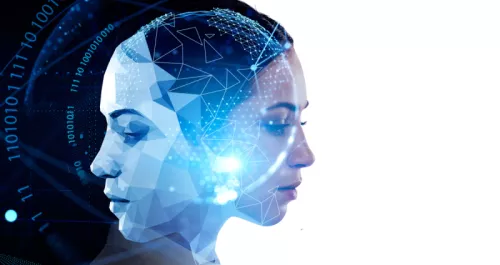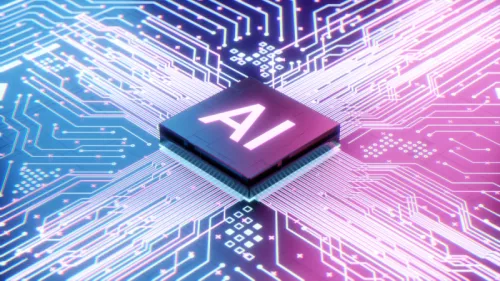AI: the good, the bad and the ugly
Every week, I hear more stories about the rapidly accelerating capability and applications of Artificial Intelligence (AI). There are some good news stories – from helping to diagnose health problems in sick patients, to ongoing efforts to analyse wildlife and poacher data and predict their behaviour to aid conservation.
But, for every good news story, it feels like there are 10 more that cause concern. Here’s just a few you may have seen recently…
- Goldman Sachs warned AI could replace 300 million jobs.
- Levi’s jeans are using AI-generated ethnically ‘diverse’ avatars as ‘models’ to make their marketing appear more ‘inclusive’.
- Workers are being subjected to impersonal and unempathetic “management by algorithm”.
- The Lensa AI art app is generating misogynistic and over-sexualised ‘portraits’ of the women who use it.
- Students are using ChatGPT to write essays faster than plagiarism software can develop to detect it. Some content created using ChatGPT has been found to include references to fake articles made up by the system as ‘sources’.
- AI has been used discriminately to determine the outcome of loan and job applications and has been found to actively generate discriminatory criminal justice outcomes.
- This week, a photographer secretly used AI to win a photo competition (then revealed what he had done and refused the prize).
The speed of technological advancement is moving so quickly and we are being catapulted into what can feel like a fast-approaching, unknown future — which is why it is so important for us to reaffirm our trust in God for our future. We can also seek out wise counsel through Christians who have expertise in this field. Dr John Lennox shared some really helpful ideas in this podcast episode by GotQuestions.com on how those of us who are unfamiliar with AI can start to understand the two main types of AI, and to respond from a place of faith. It’s well worth a listen – particularly for his ideas about the hope and truth of Christ and how humanity’s desire for AI development reveals a deeper need that only Jesus can meet.
Two broad types of AI to be aware of
- Narrow/typical AI – large databases and software that recognises patterns – tech that is very much up and running and is quite common today for a range of uses. This simulates one thing that human intelligence can do.
- Artificial General Intelligence (AGI) – the idea of a system that can do anything human intelligence can do but much quicker and better. There are two directions in AGI research: one, trying to enhance human intelligence by biological engineering, and two, using material/silicon, such as the sci-fi idea of uploading the contents of our brain to a computer.

Running out of rules
So far it might all sound a bit crazy, but an AI start-up investor, Ian Hogarth recently shared his concerns in a Financial Times article called, ‘We must slow down God-like AI’. Here’s what I took away from his ideas:
- Mind-boggling amounts of money is being poured into AGI development (or, what he calls ‘God-like AI’), increasing its abilities exponentially.
- Attempts to discuss the ethics and regulation of AGI are basic at best. AI can accomplish more and more, but the ‘rules’ needed to prevent it from wreaking havoc on people’s lives are almost non-existent. Where rules for AI do exist, they often just create a sort of friendly ‘face’ for AI that can appear to follow some ethical rules, while the technology behind it continues to develop boundlessly in the background.
- It seems there is only a tiny group of people attempting to programme the ‘face’ of AI with human-like values (such as kindness and not encouraging harmful human behaviours).
In response, Hogarth has started to invest in what he considers more ‘ethical’ AI developments and even calls for the formation of a UN-style international body to regulate development and prevent harm in the future.
“Nothing new under the sun”
We know tech corporations are monetising and collecting data on more and more corners of our lives – our income, influence, information and interests. One of the reasons these kinds of developments fills me with a sense of dread is because I already feel a daily pull to rely more and more on technology – one that is hard to resist!
As Ecclesiastes will tell us, there’s “nothing new under the sun.” This leads me to ask, am I already missing out on Holy Spirit moments in my day-to-day life because of my reliance on technology? If I’m honest, I’m afraid so. I love technology and know that God can use all sorts of ways, including tech, to work His will in the world. But much of the tech we use every day is already pushing us towards disconnection.
We are connecting face to face with others less and less.
"As Ecclesiastes will tell us, there’s “nothing new under the sun.” This leads me to ask, am I already missing out on Holy Spirit moments in my day-to-day life because of my reliance on technology? If I’m honest, I’m afraid so."
Called to connect
However, God has given us the great gift of real human connection and empathy, a gift that we are called to share. In Genesis 2, we read that none of the animals in the Garden of Eden were the right fit for Adam, they were not a suitable helper or aid to be in relationship with him, what the Bible calls an “Ezer”. Similarly, AI is never going to be an ezer for humanity. We need God and His good gift of relationships – connection, empathy, understanding – with Him and with each other. We need the fruits of the Holy Spirit – love, joy, peace, patience, kindness, goodness, faithfulness gentleness, and self-control (gifts which I don’t believe can ever truly be programmed into a bot). Even though I am concerned AI might replace my job one day, and I don’t know what the future holds, I know that it can never replace our calling and our place in God’s story for humanity.
Related pages:

Why are we so obsessed with the multiverse?
What do the latest trends in pop culture tell us about the deeper questions people are asking today? Read more



